News
-
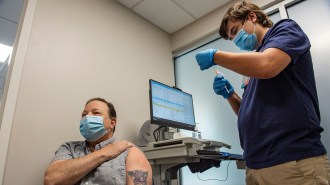 Health & Medicine
Health & MedicineWhy only some people will get COVID-19 booster shots at first
In the United States, boosters may next go to people 65 and older, those at high risk for severe disease and people whose jobs put them at high exposure risk.
-
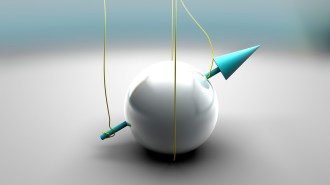 Quantum Physics
Quantum PhysicsOne of nature’s key constants is much larger in a quantum material
The fine-structure constant is 10 times its normal value in the material, giving a peek into what physics in an alternate universe could look like.
-
 Health & Medicine
Health & MedicinePfizer says its COVID-19 vaccine is safe and works well for kids ages 5–11
A lower dose of the vaccine produced as many antibodies in elementary school–age kids as a full-dose shot did in teens and young adults.
-
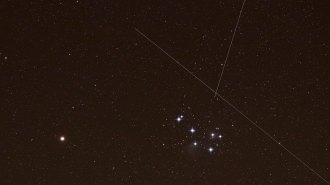 Astronomy
AstronomySatellite swarms may outshine the night sky’s natural constellations
Simulations suggest that satellite “mega-constellations” will be visible to the naked eye all night long in some locations.
-
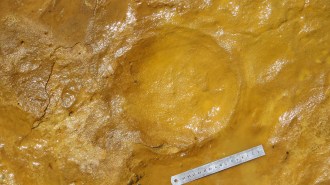 Paleontology
PaleontologyFossil tracks may reveal an ancient elephant nursery
Fossilized footprints at a site in Spain include those of an extinct elephant’s newborns, suggesting the animals may have used the area as a nursery.
By Sid Perkins -
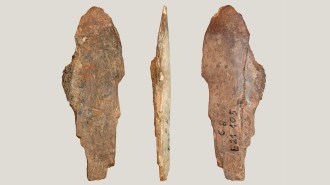 Archaeology
ArchaeologyStone Age people used bone scrapers to make leather and pelts
African cave finds include remains of skinned creatures and hide scrapers made from animal ribs.
By Bruce Bower -
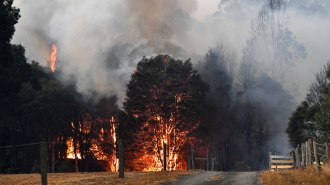 Climate
ClimateAustralian fires in 2019–2020 had even more global reach than previously thought
Recent devastating wildfires in Australia added vast amounts of carbon dioxide to the air and triggered blooms of marine algae in the Southern Ocean.
-
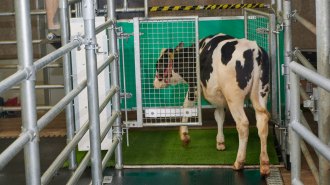 Agriculture
AgriculturePotty-trained cattle could help reduce pollution
About a dozen calves have been trained to pee in a stall. Toilet training cows on a large scale could cut down on pollution, researchers say.
-
 Earth
EarthHow AI can help forecast how much Arctic sea ice will shrink
Trained on sea ice observations and climate simulations, IceNet is 95 percent accurate in forecasting sea ice extent two months in advance.
-
 Astronomy
AstronomyA supernova’s delayed reappearance could pin down how fast the universe expands
“SN Requiem” should reappear in the 2030s and help determine the universe’s expansion rate.
By Ken Croswell -
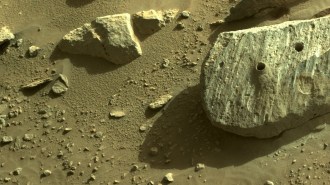 Planetary Science
Planetary ScienceNASA’s Perseverance rover snagged its first Martian rock samples
Two tubes of stone drilled from a basalt rock nicknamed Rochette are the first from Mars slated to eventually return to Earth.
-
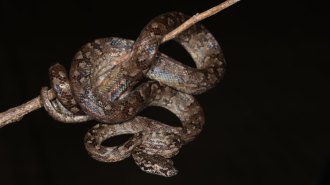 Animals
AnimalsA newfound boa sports big eyes and a square nose
Among the smallest boas in the world, the Hispaniolan vineboa inhabits a small patch of dry forest along the Dominican Republic’s border with Haiti.